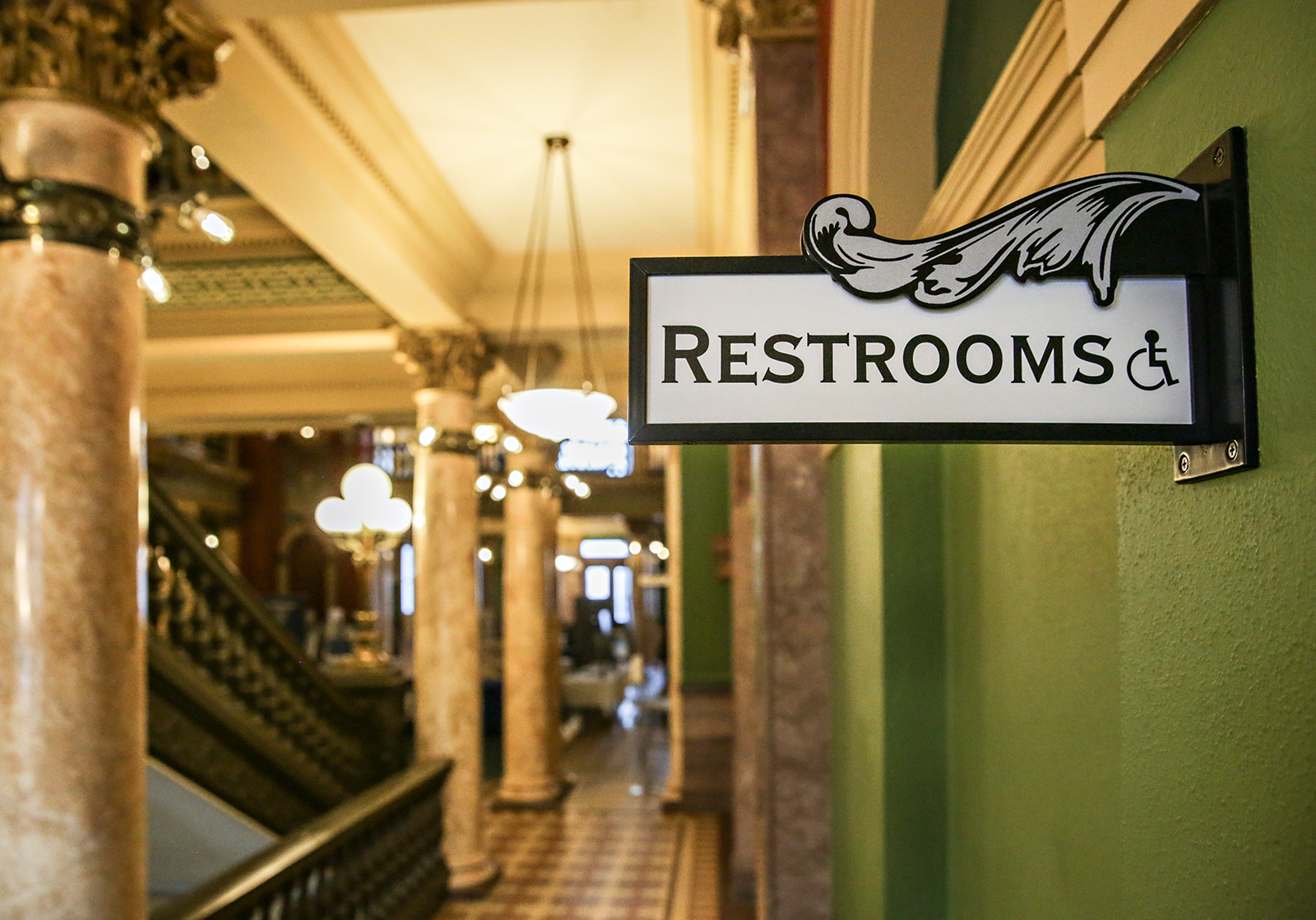Bathroom Bill Clears GOP-led Legislature, Poised to Become Law
The measure would require public facilities and domestic violence shelters to enforce strict sex segregation in locker rooms, restrooms and sleeping areas
By Mara Silvers, Montana Free Press
A bill that would require public and some private facilities to enforce sex-segregated spaces for multiuser bathrooms, dormitories and locker rooms cleared its final vote hurdle in the Montana Legislature on Tuesday.
The measure, which received party-line Republican support and vocal opposition from Democrats and transgender Montanans throughout its lightning-fast path through the Legislature, is next expected to be transmitted to Republican Gov. Greg Gianforte’s desk. It would take effect immediately upon being signed into law.
Proponents touted the bill, House Bill 121, as a way to enforce the separation of men and women in public places and curb threats of harassment or assault from people of the opposite sex.
“This bill isn’t about exclusion — it’s about common-sense boundaries that ensure fairness and respect in vulnerable spaces like restrooms, locker rooms and correctional facilities,” said bill sponsor Rep. Kerri Seekins-Crowe, R-Billings, in a Tuesday comment to Montana Free Press. “Montanans deserve the peace of mind that their families are safe, and I look forward to Governor Gianforte signing HB 121 into law.”
A spokesperson for Gianforte said Tuesday that the governor welcomes legislation that “provides privacy and security to women and girls in private spaces” and that he will “carefully consider” any bill that comes to his desk. Lt. Gov. Kristin Juras consistently testified in favor of the bill during its committee hearings.
As written, HB 121 would require public entities including the state Capitol building, schools, jails, prisons and libraries, as well as private domestic violence shelters that receive public funding, to provide separate multiuser spaces for men and women based on a person’s chromosomes and reproductive biology. Opponents testified that that criteria would classify many transgender and nonbinary people according to their sex assigned at birth, regardless of their external appearance or gender identity.
The bill does not explain how the affected settings should evaluate what restroom, changing room or sleeping quarters a person should use. The bill allows an individual who “encounters another individual of the opposite sex in the restroom or changing room” to sue the facility within two years of the incident for “declaratory and injunctive relief, nominal damages, and any other appropriate relief.”
Democrats and other opponents, including many transgender Montanans and LGBTQ+ civil rights advocates, said HB 121 would create a double-bind for people who don’t fit the measure’s definitions of male and female. Trans women would be legally required to use male facilities, while trans men would be wrongly categorized as women, argued Sen. Cora Neumann, D-Bozeman, during a Monday debate on the Senate floor.
“You are actually passing a law that will put people in a more uncomfortable space,” Neumann said. “This is not what the people of Montana need. They need you using their money wisely. They need you using our time wisely and voting on things that will actually make their lives better.”
Democrats on Monday also pushed to amend the bill to move the implementation date to July 1, arguing that earlier implementation may force some facilities, such as domestic violence shelters, to close because of potentially necessary renovations to multiuser spaces and other difficulties with compliance. The motion failed to pass on a 28-22 vote.
Republican lawmakers who opposed the amendment later doubled down on the importance of an immediate effective date, arguing that domestic violence shelters concerned about following the bill’s mandates should seek private funding to upgrade their facilities. The bill passed its final vote in the Senate 32-18, with all Republicans in favor and all Democrats opposed.
During January committee hearings, proponents, opponents and lawmakers delved into the potential liability for public facilities accused of being out of compliance with HB 121.
Many opponents, and some proponents, highlighted the difficulty of knowing whether a person is correctly using the designated space based on their appearance alone. Multiple transgender men testified that the bill would categorize them as women, creating confusion, discomfort and potentially fear if they were to use women’s restrooms and changing rooms.
Representatives of civil rights groups that have historically sued over Montana legislation that impacts transgender people have said they are considering fighting the bill in court.
“No public facility, no local government, no state agencies understand exactly what they’re going to do to avoid liability under HB 121,” said Alex Rate, legal director for the ACLU of Montana, in a Tuesday comment to MTFP. “Covered entities are understandably fearful and confused.”
The bill had not been transmitted to the governor’s office as of late Tuesday afternoon.
This story originally appeared in the Montana Free Press, which can be found online at montanafreepress.org.